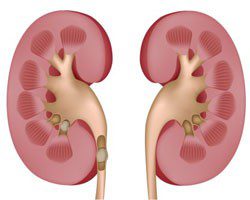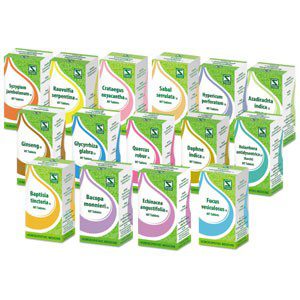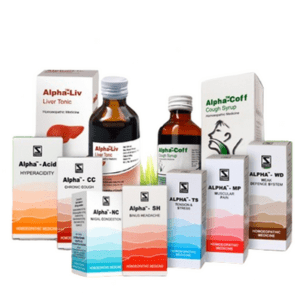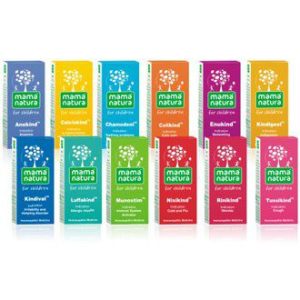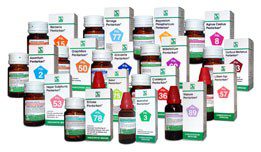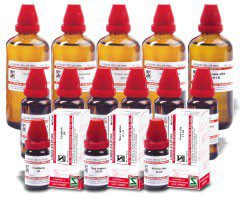Doctors Zone
Journal (JEBH)
Alpha™- Liv Drops
Alpha – Liv Drops Due to high demand from the market, for a formulation in drops for the liver, apart from the syrup already available in the market, Schwabe India developed this product. Introduction The liver plays a key role in metabolism. It has anabolic and catabolic, exocrine and endocrine functions. The liver is a blood reservoir, filter and store of different substances (e.g. glycogen, vitamins). It is the site of serum protein (e.g. albumin, prothrombin, fibrinogen) and enzyme synthesis. Metabolic processes (e.g. bilirubin, hormone, carbohydrate and lipid turnover) and the removal of toxic products are important liver functions. 1 Hepatotoxins (e.g. alcohol, tetracycline, acetaminophen, fungal toxins, and anabolic steroids) can cause specific damage to liver cells. Toxic hepatitis may be clinically silent or severe enough to lead to the rapid development of hepatic failure. Clinical features include hepatomegaly, enzyme abnormalities, fever, abdominal pain, anorexia, nausea, vomiting and weight loss. In patients with underlying cirrhosis, manifestations of portal hypertension may predominate. Aversion to fatty food, abdominal discomfort, nausea and vomiting after meals may be symptoms of 2 cholelithiasis. Jaundice results from accumulation of bilirubin. It has non-hepatic as well as hepatic causes. Hyperbilirubinaemia may be due to abnormalities in the 3 formation, transport, metabolism or excretion of bilirubin. TM Alpha -Liv Drops aids recovery and normalisation of liver functions. Severe liver disease needs specialised treatment. Indications: Slow liver functions, fatty liver, and for supportive treatment of hepatocellular jaundice and toxic liver damage.

Ginkgo biloba 1x – Schwabe News Apr – Dec 2019 – Schwabe India
Ginkgo biloba 1x
Ginkgo is a recognized medicine for insufficient cerebral circulation, peripheral vascular problems and for neuro-sensorial affections of circulatory origin relating to ears, nose, throat and eyes. It is a proved homoeopathic medicine. The pathogenesis covers weakness of memory and difficulty to think, trembling, insomnia, difficult deglutition, ocular balls painful, heaviness in frontal region and vertigo, buzzing sensation of blockage of ears with diminution of auditive acuity, general lameness with chill, headache (cannot keep head straight without support); all symptoms are better by heat.1
The pharmacology of Ginkgo biloba exhibited Prolyl endopeptidase (PEP) inhibition, suggestive of its role in learning and memory process, major depressions, and senile dementia. Studies have revealed that PEP activities are significantly higher in Alzheimer’s patients.2 Other studies suggest improvement of cerebral circulation aiding memory, helping cases of dementia; its anti-inflammatory action is deep down to auto-immune problems including multiple sclerosis; it inhibits platelet activating factor (PAF).3 PAF causes blood to become stickier and, therefore, more likely to produce blood clots, induces various inflammations and allergic changes. Research on the drug is continuing but the core action is improving cerebral circulation.
Where to remember Schwabe’s Ginkgo biloba 1X tablets?
- Insufficient cerebral circulation and the symptoms arising thereof.
- Buzzing in the ears (Tinnitus).
- Vertigo & incoordinated movement.
- Trembling of hands.
It can be used alone or as supplement to other medicines.
Dosage: Unless otherwise prescribed by the physician, 1-2 tablets 2-3 times daily. In acute conditions two tablets every hour for a day. If complaints are not relieved, consult a specialist.
Side effects: No side effects of Ginkgo biloba 1X are known.
Contraindications: No contraindications for the use of Ginkgo biloba 1X are known.
Interactions: No interactions between Ginkgo biloba 1X and other products are known.
Presentation: Bottle of 20g.
References
- O. A. Julian, Materia Medica of New Homoeopathic Remedies, RadarOpus 1.33 (Homoeopathic Software), Archibel S.A. Rue Fontaine St. Pierre 1E, Zoning Industriel de la Fagne, 5330 Assesse, Belgium.
- Lee JH et al. Prolyl endopeptidase inhibitors from the leaves of Ginkgo biloba. Plant Medica, Vol. 70, Dec. 2004.
- Andrew Chevallier, The Encyclopedia of Medicinal Plants, 1st Edition, 1996, Dorling Kindersley, London.
Recent Advancements in Basic Homeopathic Research – A Report on Two Significant Publication
In a study conducted at the Experimental Farm of the State University of Santa Catarina, Brazil, researchers investigated the impact of homeopathic treatments on piglets during the nursery phase. The study aimed to determine whether homeopathic agents could reduce fighting behavior, improve growth performance, and affect hematological, metabolic, and oxidative variables. The study included 108 weaned piglets divided into four groups: a negative control group receiving only the basal diet, and three groups receiving different homeopathic treatments at varying dosages.
Journal of Evidence Based Homeopathy Volume: 1, Issue: 1, January - June 2023
Comprehensive articles

Agrohomeopathy – A Review
Short cases

Unmasking the Intricacies: A Pyogenic Abscess Case Report

Lichen Simplex: A Singular Case Study

Ranula Unveiled: A Case Report and Management Approach

Lichen Simplex: A Singular Case Study

A Puzzling Presentation: A Case Report of Jaundice
Recent provings and updated materia medica

Acidum Formicum

Mygale

Thea Chinensis
Materia medica on phytohomeopathy

Chrysarobinum

Sanguinarinum nitricum

Thiosinaminum
Mother tincture

Asparagus Officinalis

Ginkgo Biloba

Rosmarinus Officinalis
Product watch

Alpha™- Liv Drops

Good Morning™ Constipation Drops

Zauber™ Hair Drops
Research News











